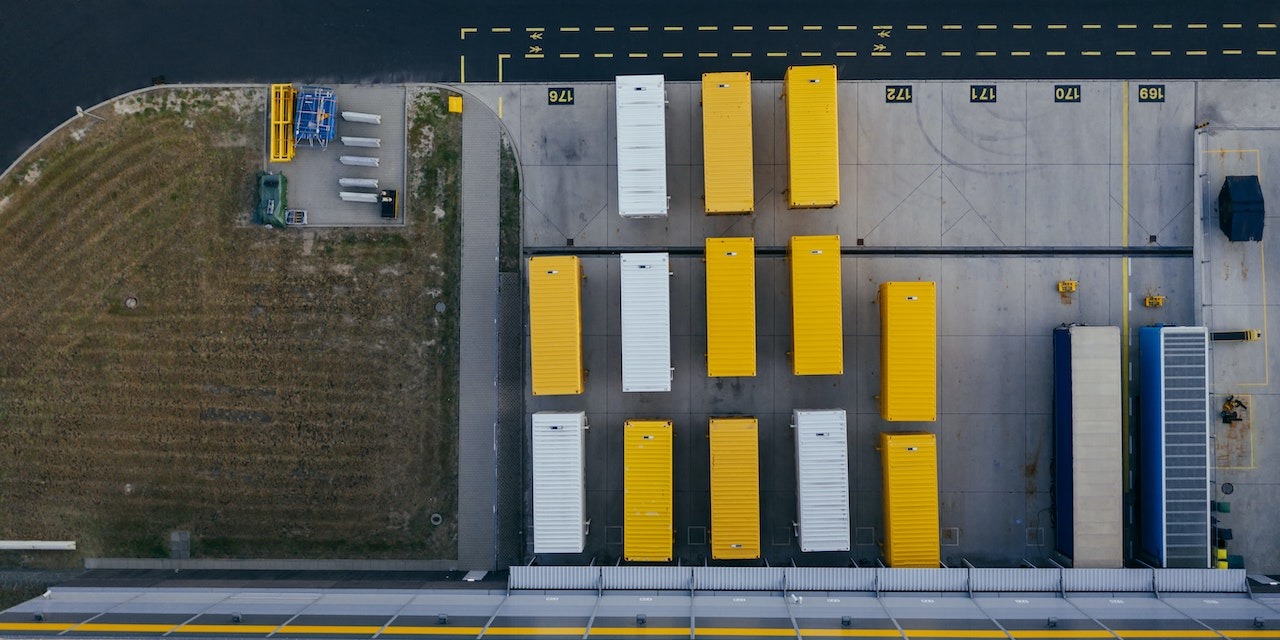In order to answer your request, we are obligated to process the data given above. Sometimes, however, we would like to use them for slightly different purposes, such as statistical data or informing you about our new products and services.We promise that we will use the given information for communication purposes only. We also remind you that you can unsubscribe from our mailing at any time (see Privacy Policy).
Business development in the ecommerce segment is largely based on high-quality customer service. Satisfied buyers come back, recommend purchases to their friends and the circle of clients grows. However, this is not always so obvious for small and medium-sized ecommerce businesses. In terms of building up a stable market position, it is worthwhile taking care of top-quality order processing from the start.
What is ecommerce fulfillment?
Ecommerce fulfillment covers the entire range of activities from taking an order in an online shop or marketplace to delivering the parcel to the end customer on time. Looking from the client's perspective there is nothing complicated about it. We take the right product, pack the parcel and make the delivery. From an ecommerce point of view, this can be a multi-step process that consumes space, time, and resources.
Ecommerce fulfillment involves the storage/warehousing of the products, orders processing, item collection and packaging, shipping, and sometimes returns service. Depending on the situation, each of these stages may become more or less complicated. It’s difficult to anticipate potential risks and to react appropriately when we handling the whole process alone. At the same time, it is this part of the supply chain that has a significant impact on clients' satisfaction with the purchase. As customers, we evaluate the time and cost of delivery, packaging type (e.g. eco-friendly), anything we’ll find inside, like a nice note or discount code, and finally the product itself. This is why the biggest companies decide to outsource orders fulfillment.
Types of ecommerce fulfillment models
Before you decide how to handle orders, we would like to discuss four models of ecommerce fulfillment:
-
In-house order fulfillment
This is the most common type, mainly for ecommerce startups. The entire process is carried out by the e-shop, except for delivery. This means that the goods are stored in the owner's house, garage, or small warehouse which is perfectly normal in the initial stage of growth. Doing everything in-house certainly gives a huge control over the whole process. Season peaks and dealing efficiently with a high number of orders can be a problem here.
-
Outsourcing order fulfillment
This is a favorable model, especially for the mid-sized and growing ecommerce. It allows for increased storage space, proper arrangement of products, faster order processing, and new forms of delivery. A huge part of the responsibility is transferred to the 3PL company, so the owner can focus on business development, marketing strategy, and attracting new clients. It surely makes it easier to scale the business and enter foreign markets.
-
Dropshipping
In this ecommerce fulfillment type products available on the marketplace or website are physically located in the manufacturer's warehouse. All logistical issues such as storage, packaging, and shipping are on the producer's side. In a such case, coordinating and fulfilling orders from different suppliers can be difficult.
-
A mix of systems
The company may choose this model when it wants to manage part of the products itself and subcontract others. This solution appears in the case of several sales channels, online and offline.
Understanding The Order Fulfillment Process and planning your strategy
The order fulfillment process is pretty similar for every chosen model, so it is worth remembering and understanding its various stages.
Stage I – Receiving
This phase is about filling the warehouse with products sold in the online shop. Depending on the type of chosen ecommerce logistics the products should be delivered to their warehouse or selected 3PL’s fulfillment center. The better prepared the storage supply is, the faster the order fulfillment process can start.
Stage II – Storage
Depending on the type or size of products, storage shall take place in appropriate locations such as shelves, containers, or pallets. How goods are organized in the warehouse is key to fulfilling orders successfully and promptly.
Stage III - Processing
The moment when the order placed by the customer is received. If ecommerce uses fulfillment services, the order appears in the warehouse management system and its processing begins.
Stage IV – Picking
In short, it’s a collection of products from the warehouse storage locations in quantities as ordered.
Stage V – Packing
It’s one of the most important stages of the process. Products should be properly packed and labeled because this ensures safe transportation. At this moment free products or leaflets can be also placed in the package. If order fulfillment is outsourced, a subcontractor can agree to personalise shipments by using e.g. custom boxes.
Stage VI – Shipping
When the order has been packed it’s time to send it out. Depending on the destination, it can be shipped by one or more transportation methods. By cooperating with a 3PL’s company ecommerce gain the opportunity to work with the best logistics operators. When the shipment is dispatched, the store receives the order tracking number.
Stage VII – Returns
It cannot be avoided, returns are an integral part of internet sales. There are two options: returns can go to the same place they left from (e.g. own warehouse, provider center, producer’s warehouse), or ecommerce can handle them ourselves. The returns procedure is part of the customer service and therefore requires just as much care as new order service.
Now, when you know the order fulfillment process and types of ecommerce fulfillment, you can focus on planning your strategy. It should be tailored first and foremost to the needs and resources you have at the moment.
Our experts are an experienced and talented group of people who can help you make the best decisions for your business.
How to decide which ecommerce fulfillment service model to use?
To choose the right model for your business, you need to consider a few key issues. Give yourself time and analyse your company's current needs.
- Size
Consider at what stage of development your ecommerce is. How many orders do you process per month? How many products do you offer? Are you able to process all orders during seasonal sales peaks? If the number of orders is constant and you manage to fulfill them successfully, in-house order fulfillment will be enough. If you are experiencing obstacles, such as long processing time, lack of storage space, or the number of orders that are beyond your means, it is the right time to think about different ecommerce fulfillment services.
- Location
This is strongly linked to the size of your business. Do you sell your products locally only? Or are you thinking about scaling up the business and selling abroad? Managing the order fulfillment process in other countries using in-house fulfillment will be expensive and time-consuming. Negotiations with logistics operators, legal and tax issues can drain your resources. By outsourcing order fulfillment you can start expansion from a better position.
- Technology
If you just started to develop your business, this point may not be obvious. Do you use a specific system to manage your orders? Please, remember that outsourcing your order processing will involve linking the system you use with the warehouse one. The technology you’ll choose should enable a seamless connection between shopping platforms, your ecommerce, and 3PL’s fulfillment center. In this way, you will be able to keep track of your orders and the stages of their processing.
We know how many aspects we already touched upon and that it may seem complicated. But at the same time, we can offer a solution - Linker Cloud Fulfillment Network. International platform for every size ecommerce and logistics operators, which makes it possible to establish secure and fruitful cooperation between them.
As ecommerce you will gain:
- expert assistance,
- seamless connection between your shop and fulfillment partner,
- one-click access to new markets,
- cost and process optimisation,
- one agreement only.
By using our network you can satisfy business needs and increase the chance to grow.





